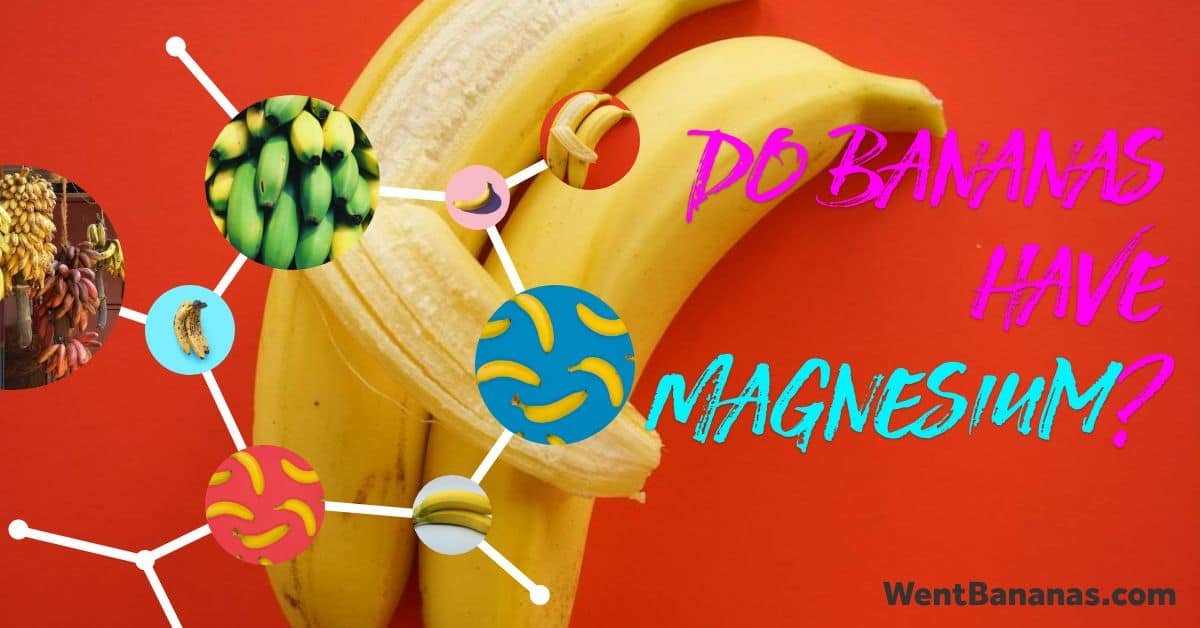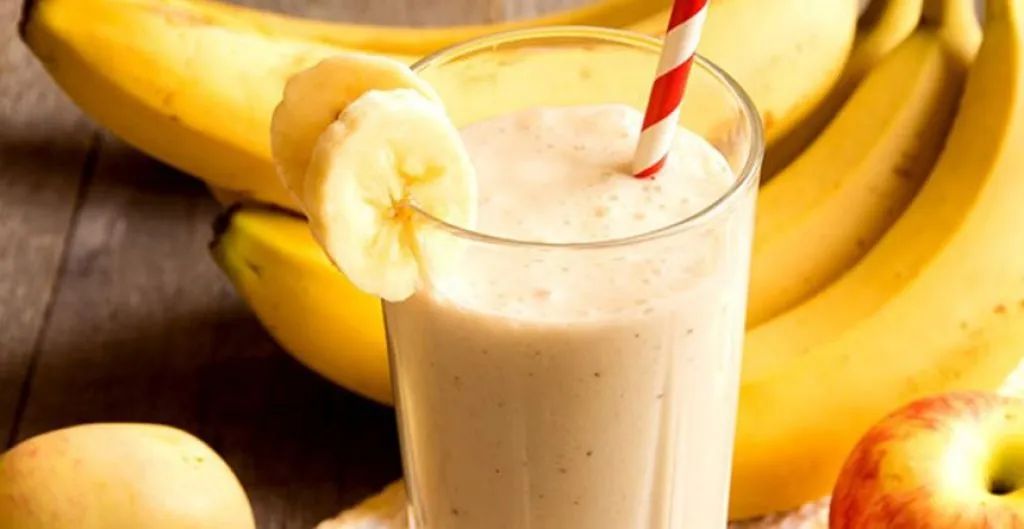Bananas are an incredibly popular fruit, and they come with a number of nutritional benefits as well. One of these benefits is the presence of magnesium; but just how much magnesium can be found in a banana? How does it compare to other sources of magnesium, and why is it important to get enough in your diet?

In this article, we’ll explore these questions and more. We’ll look at the nutritional benefits of bananas, how much magnesium can be found in a single banana, what other nutrients are present, and where else you can find magnesium. So keep reading to learn all about the magnesium content of bananas and their importance to your diet!
What Are the Nutritional Benefits of Bananas?
Bananas are one of the most beloved fruits and for good reason. Not only are they incredibly versatile and delicious, but bananas also provide a variety of nutritional benefits that make them an excellent addition to any diet.

For starters, bananas contain several essential vitamins and minerals such as vitamin B6, potassium, magnesium, and manganese – all of which can help support a healthy body. Additionally, bananas are naturally low in calories yet surprisingly high in dietary fiber; consuming just one banana provides nearly 3 grams of dietary fiber per serving! This makes them not only filling but also helps aid digestion while providing valuable nutrients at the same time.
Bananas are abundant with antioxidants too; these beneficial compounds help protect our bodies from free radical damage thus reducing inflammation over time which can lead to chronic diseases like cancer or heart disease if left unchecked. Furthermore eating foods rich in certain carotenoids such as lutein may reduce your risk for age-related macular degeneration (AMD) – the leading cause of blindness among older adults – making this yellow fruit especially important for seniors looking to preserve their eye health into later years! Finally, due to its natural sweetness without adding refined sugars or artificial sweeteners, it is often recommended by nutritionists when trying to satisfy cravings without derailing your overall diet goals
How Much Magnesium Can Be Found in a Banana?
A single banana contains approximately 32 milligrams of magnesium. This makes it a great source of this essential mineral, and an easy addition to the diets of people looking for more magnesium in their diet.
Magnesium is important for many bodily functions including muscle and nerve function, blood sugar regulation, and energy production. It plays an important role in maintaining healthy bones, and heart health, controlling inflammation levels in the body as well as helping with sleep quality.
Bananas are also a nutritious choice due to their high fiber content which helps aid digestion and maintain regularity; its potassium content aids with maintaining proper electrolyte balance; vitamin B6 helps metabolize proteins efficiently; Vitamin C boosts immunity; manganese may help reduce PMS symptoms by regulating hormones like serotonin and dopamine levels; lastly Banana’s tryptophan can help you get better rest at night!
What Other Nutrients Are Present in a Banana?
Bananas are a nutrient-dense fruit that offers many health benefits. Along with their high content of potassium, vitamin C, dietary fiber, and magnesium, bananas also contain other essential vitamins and minerals. These include Vitamin B6, folate, and manganese which help to support healthy cell growth as well as maintain healthy bones, teeth, and skin. They also provide zinc for immune system health along with iron for oxygen transport in the body. Additionally, they are rich in antioxidants such as polyphenols which can reduce inflammation throughout the body.
Bananas contain various types of sugars including glucose-fructose sucrose dextrin maltose galactose stachyose raffinose melezitose melibiase pancreatin all these together contribute to an excellent source of energy allowing people to keep going all day long! Their low glycemic index makes them an ideal snack or breakfast food choice compared to more sugary options like cookies or cakes that may cause spikes in blood sugar levels after consumption
Are There Other Sources of Magnesium Besides Bananas?
Magnesium is an essential mineral for human health, and its deficiency can lead to a wide range of symptoms including insomnia, fatigue, anxiety, and muscle weakness. While bananas are one source of magnesium that many people know about, there are actually plenty of other sources as well.
For example, leafy green vegetables like spinach or kale provide a significant amount of dietary magnesium. Fish such as mackerel or salmon also contain high levels while nuts such as almonds and cashews provide moderate quantities too. Whole grains like oatmeal and bread made from whole wheat are also good sources too; additionally, dairy products like yogurt contain trace amounts which may add up if consumed over time in larger quantities. Finally, seeds such as sesame seeds or pumpkin seeds contain the highest concentrations per weight compared to any other food type so using these can be very effective when creating dishes with higher nutrition values containing more magnesium than any single fruit could offer by itself without compromising taste either!
Why Is It Important to Get Enough Magnesium in Your Diet?
Magnesium is an essential mineral that is necessary for a variety of bodily functions. It helps with muscle relaxation, energy production, and the maintenance of healthy bones and teeth. Not getting enough magnesium can cause fatigue, stress, anxiety, and numerous other health issues.

It’s important to make sure you’re getting enough magnesium in your diet as it can help maintain a healthy body functioning for optimal well-being. Magnesium plays a role in many cellular processes such as blood circulation, heart rate regulation, and insulin sensitivity — all important components of overall health and wellness. Additionally, research shows that sufficient levels of dietary magnesium may reduce the risk of stroke by up to 9%.
Eating foods rich in this nutrient can ensure your body has sufficient stores while avoiding potential health risks associated with deficiencies like high blood pressure or diabetes over time. Foods rich in this nutrient include nuts (almonds particularly), green leafy vegetables (such as spinach), legumes (like beans) whole grains such as quinoa or brown rice Whole milk products are also good sources but should be consumed sparingly due to their saturated fat content which could potentially increase cholesterol levels if not monitored closely Getting a balance between these natural food sources along with supplements will guarantee adequate amounts needed each day
Our Final Thoughts
In conclusion, bananas are a great source of magnesium as well as other important nutrients such as potassium. Eating just one banana can provide you with 10% of your daily recommended allowance for magnesium. If you don’t want to get all your magnesium from bananas, there are many other sources available so that it’s easy to get the recommended amount into your diet. For more information on how much magnesium is in a banana and what other nutritional benefits they offer, be sure to check out our blog!







